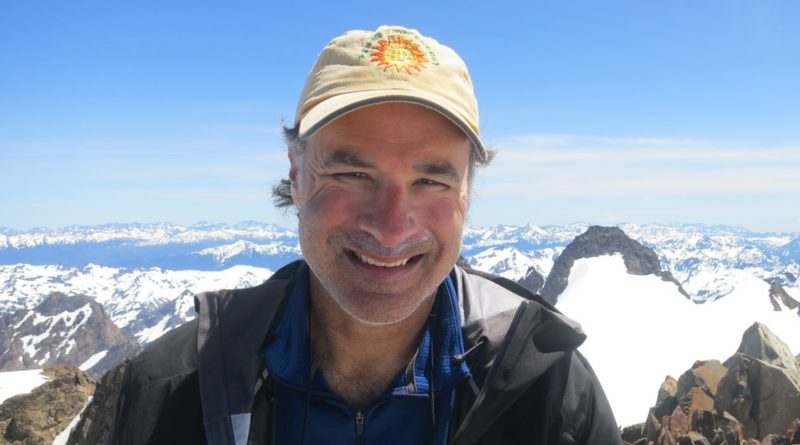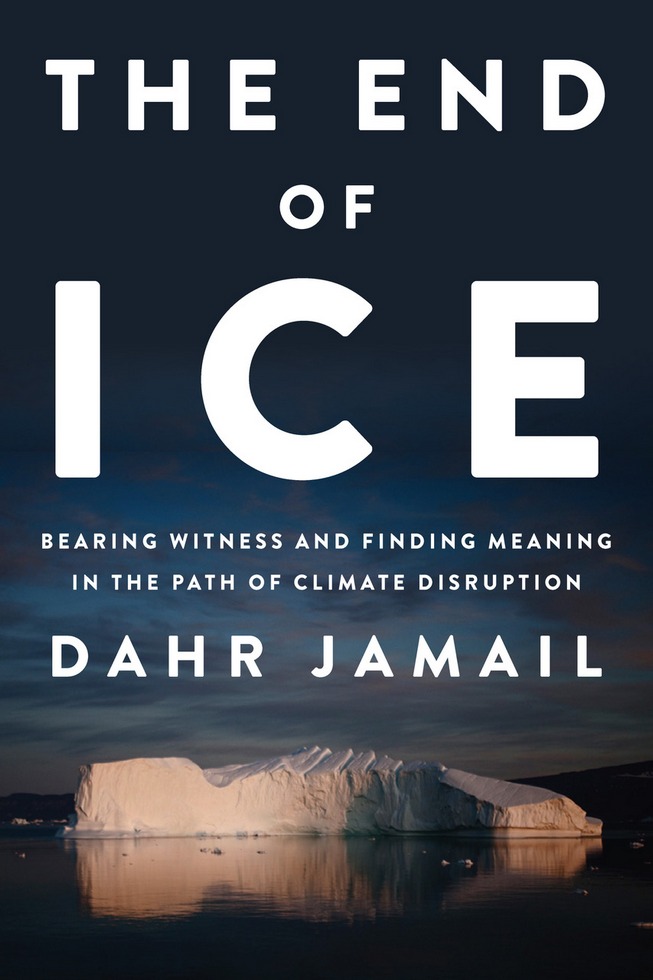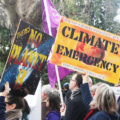We Are off the Cliff
A conversation with Dahr Jamail, an American investigative journalist and author. He reported from Iraq, Syria, Lebanon, Turkey and Jordan. Now his writings focus on issues related to the environment and climate change.
Zielone Wiadomości [The Green News]: What circumstances prompted you to become an independent, investigative reporter?
Dahr Jamail: I was completely flabbergasted by the US corporate media’s selling of the invasion of Iraq to the general public. Given that I became politicised rather late in life (I was around 32 when I woke up from my privilege) that outrage was acute. I’d long since been a writer, and decided one thing I could do was go to Iraq myself and start writing about how the invasion and occupation was affecting the Iraqi people. So I bought a laptop, a camera and a plane ticket, figured out how to get into the country, and went. That was November 2003. Unpaid blogging turned into doing some freelancing which turned into a full-time job.
Surely your stay in war-torn Iraq was a traumatic and transformative experience?
I ended up spending more than a year of my life in Iraq over 8 trips spanning 10 years. Most of the time was spent during the first few years of the US occupation of that country.
My time in Iraq changed me, both as a human and as a citizen of the empire. As a human, I really saw the lengths power is willing to go to maintain itself. The US empire is without a doubt the most brutal and ruthless empire in the history of the world, and I got to live on the front lines of that for a year. I watched it chew up women, children, the aged and sick, as well as men from Iraq who chose to take a stand and fight back. The imperial juggernaut crushed them all, and continues to operate within this war-torn country that has been stretched and pulled and bombed and starved and disintegrated for decades now by Washington – indirectly and directly.
As a citizen of the occupying country, needless to say, I felt shame for all of our failure to stop the invasion, along with the ongoing abject refusal of the citizenry of the US to take full responsibly for what their government is doing to the rest of the planet. I should add that I was consistently humbled by the dignity of the Iraqi people – who always were quick to make the distinction between the American people and the government and be more than forgiving to the former.
What is the main ambition of the US national security apparatus – the largest and most expensive military complex in the history of civilization? It is evident that it doesn’t defend freedom and democracy – Washington actively supports 73% of the world’s dictatorships.
Empire is the goal. And imperial expansion. Plain and simple. All one needs to do is read the government’s own unclassified documents. Global economic hegemony, by way of using the hammer that is the US military. It is readily available for anyone interested in reading the annual US Pentagon’s Quadrennial Defense Review Report.
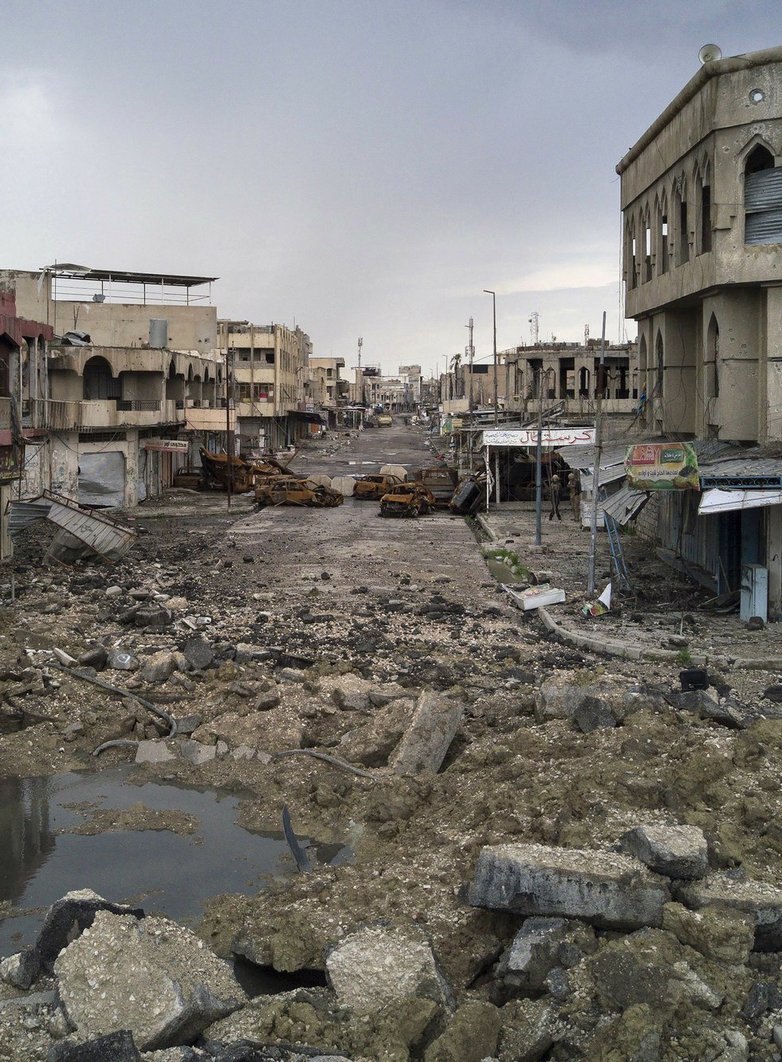
You followed the consequences of imperial invasions to the shores of America. In your book The Will to Resist (Haymarket Books, January 2011), you gave voice to US Army veterans whose minds and bodies were shattered in Iraq and Afghanistan. You also introduced the plight of soldiers who disobeyed orders. These women and men remain invisible. Their acts of moral courage and defiance are not celebrated by our hierarchical, violent culture which rewards for blind obedience and fluency in the language of violence.
It was deeply inspiring to me when I began meeting US soldiers who were either refusing to go to Iraq altogether, who were returning with stories of their resistance to following orders in Iraq, or who had returned and were refusing to go back.
War dehumanizes everyone it touches. Given that I’d seen first-hand atrocities carried out by US military personnel in Iraq, I too had become dehumanized along with projecting that onto them for what some of them had carried out. Meeting and interviewing and sometimes even becoming friends with many of these soldiers as I wrote my book was a deeply healing experience for me.
Which case of insubordination did you find particularly powerful?
Ehren Watada’s refusal to deploy to Iraq. At the time he took his stand, he was a Lieutenant, and the highest-ranking member of the military to refuse to go. He cited the US Constitution, alongside international law, and made himself an example of what someone acting on their morality really looks like.
What were the factors which drove your protagonists to join the army?
With most of them, it was financial – they came from poor backgrounds, and it was their only way to get out of their hometowns and perhaps have a chance at getting enough money together for university. Several of them, however, joined in the orgy of nationalism following the events of 9/11 in the US.
Only a few of them I’d spoken with joined because they truly believed in the US military, and that serving the country in that way was a highly honorable thing to do. Those who did join for that reason, quickly realized they’d made a terrible mistake, and were being taken advantage of and exploited simply for corporate gains. The military was used simply to bulldoze a path into Iraq which could be used by the Bechtel’s and Halliburton’s and hundreds (if not thousands) of other companies looking to profit off the blood of the Iraqi people (and the US soldiers themselves).
The imperial assault on humans unavoidably goes in parallel with the wholesale destruction of non-humans and the Earth’s life-supporting systems.
Yes, it does. The US military is the single largest user of fossil fuels on the planet and the number one emitter of greenhouse gasses. It’s coupled with the environmental impacts of exploding munitions, training exercises around the world, pollution emitted from all of the aforementioned, and the footprints of hundreds of bases globally.
Why did you shift your focus from wars and militarism to the environment and climate?
Human-caused climate change and the sixth mass extinction are the biggest stories for all humans, and for every species on the planet. We stand on the brink of our own possible extinction. We’ve already emitted deadly amounts of greenhouse gases. The last time there was this much CO2 in the atmosphere, it warmed the Earth 7°C higher than today’s temperatures, and the seas were 23 meters higher. We are now in a time where the damage has been done. We are simply waiting for the Earth to fully express all of that damage.
How and if humans survive is in question, along with a myriad of other species on the planet. What could possibly be a more important story than this?
The mainstream media don’t seem to share your conclusion. They painstakingly construct a narrative which avoids shedding any light on the real dimensions and causes of wars, terrorism and ecocide. No single Western broadcaster connects the dots or even attempts to present a broader view of the planetary drama. What are the reasons for their strategy which constitutes an unmistakable betrayal of public trust?
„Follow the money”. There is no income to be made in reporting the unraveling of the biosphere. All of the mainstream media in the US (and most of it abroad) is beholden to its corporate sponsors, whose businesses are contingent upon the maintenance of business as usual and perpetual growth. They are way more concerned with ratings. The imperative is to bring enough consumers to watch their adverts. Breaking a big news story that’s going to have dramatic economic implications, as well as life implications, is not good for their business model.
Additionally, they have conditioned their readers and viewers to seek more info/etertainment instead of news. Hence, they have conditioned themselves as news networks to pursue more entertainment stories (the so-called infotainment: sports, celebrities, oddities etc.) in order to give the audience what it wants. So it’s a vicious circle. No one wants to waste time talking about the planetary emergency (e.g. the Earth quickly losing its conditioner, the Arctic sea ice). Most people don’t want to hear about it.
There’s another factor: groupthink. Practically all the media outlets are to a certain extent affected by it. As a reporter, I experienced the phenomenon firsthand. Following the editors on the news floor, we would be oftentimes waiting to report on the breaking story until another major media outlet took the lead. We were afraid to run it because we didn’t want to be wrong, the story could have ended up being overly sensational etc. It’s not really journalism anymore. Certainly not in the case of the major broadcasters.
In your monthly climate dispatches, you’ve substituted the term „climate change” with the acronym ACD. Could you explain the rationale behind its use?
It stands for Anthropogenic Climate Disruption. I chose to do this in order to be scientifically accurate, and because since most of my audience is in the US, where the fossil fuel industry continues to foment the climate change denial movement. Climate always changes – this is a fact. So calling it ACD means it is human-caused, and that the climate is disrupted. Which is more accurate, given some places actually cool, most warm, but everywhere it is without a doubt disrupted.
There is very little awareness that the planet is in the midst of the sixth mass extinction event set off by the civilized humans. Our industrial behemoth has destroyed 83% of all wild mammals and half of all plants. The biomass of flying insects has shrunk 76%. The number of wild animals is set to fall by two-thirds by 2020. How does this reduction in biodiversity compare with the previous planetary die-offs discovered in the geological record?
We have, by far, injected more CO2 into the atmosphere at a far more rapid rate, than any of the previous mass extinction events – including even the Great Dying from 252 million years ago that annihilated more than 90 percent of life on the Earth. However, while that Permian-Triassic event took place over 80,000 years, it has only taken the industrial civilization roughly 200 years to get to the point we are now, where the oceans are already acidifying – most studies point to the fact that there likely won’t be any functional coral reefs left on the Earth by 2050 – forests are disappearing, major species migrations are already occurring, and the background extinction rate today is already 10,000 times higher than the natural background extinction rate.
In short, it is absolutely astounding how fast this mass extinction event is unfolding.
No wonder a growing number of scientific studies that detail the abrupt shifts in the main components of the biosphere contain the phrase „faster than expected”. Why did the earlier research assume a much lower rate of future changes? Can it be solely attributed to the habitual conservatism and caution practiced by scientists?
I see this, at least in part, as a product of the fact that it often takes years to carry out a study, then the reviewing process takes a year or more on top of that. So by the time data is published it is already out of date. For the UN Intergovernmental Panel on Climate Change (IPCC), even by the time one of their new reports is published, that data is often a decade old. Thus, the studies are never keeping up with what is happening on the ground.
Plus, most analyses are not accounting for the positive feedbacks that have already kicked in.
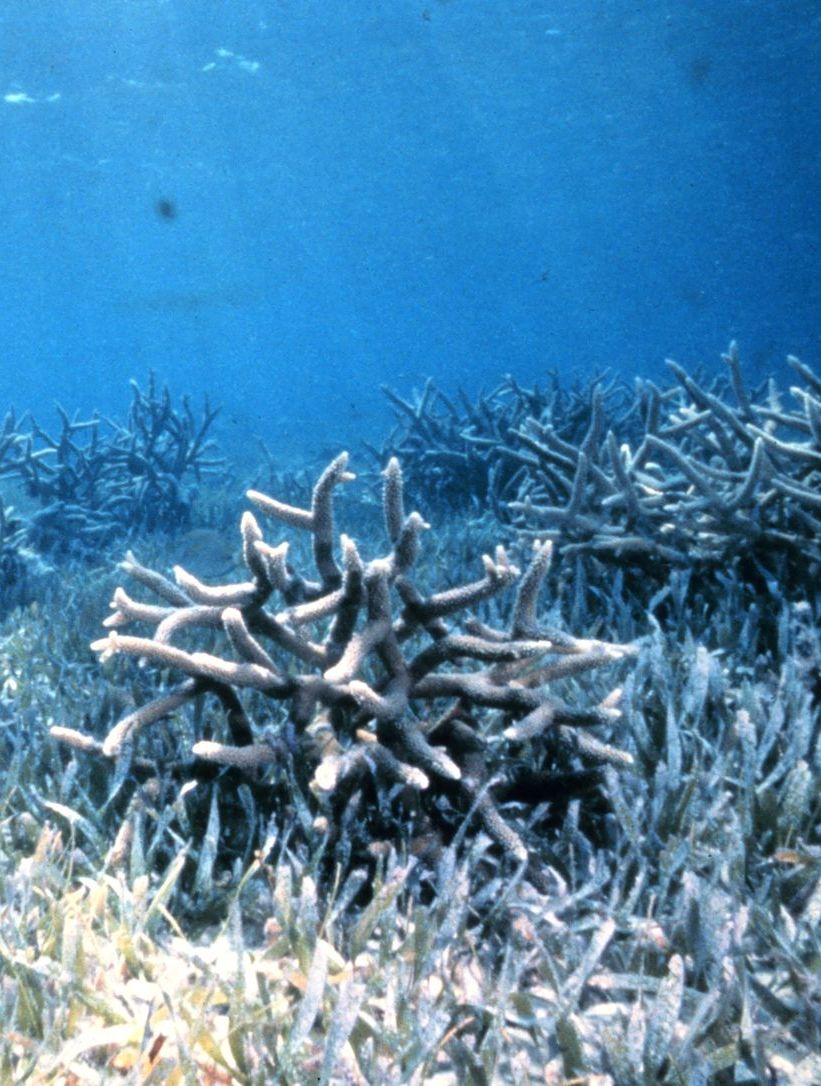
In 1990 the United Nations Advisory Group on Greenhouse Gases warned about them. Its members stated that the warming of the planet – as compared to the pre-industrial baseline from 1750 – mustn’t be allowed to exceed 1°C because it would „elicit sudden, unpredictable and non-linear responses that could lead to extensive ecosystem damage”. This absolute upper limit has already been crossed by a wide margin. Do the recent observations confirm the triggering of the predicted exponential and destructive effects?
Absolutely. Additionally, former NASA head of the Goddard Institute for Space Studies James Hansen has warned of this for years, as well as having published a study with colleagues stating precisely this.
The positive feedbacks reinforce themselves and each other. We are already off the cliff.
Could you give an example of a runaway feedback loop?
Global warming intensifies droughts and wildfires. In turn, they cause woodlands to release more heat-trapping gases into the atmosphere. As this trend continues, forests – such as the Amazon – become a carbon input, rather than a sink, and accelerate global warming… which intensifies droughts and wildfires.
So once such feedback is in motion, it can’t be stopped and reversed within the time frame relevant to human experience.
Unfortunately, no.
Do the projections provided by the IPCC reflect this reality? Do climatologists model the behaviour of such phenomena?
I’ve spoken with several scientists, some of them even IPCC authors themselves, who unequivocally state that the IPCC is politically influenced to always lowball their predictions and modeling. One scientist even calls them „criminally negligent” for how extreme their lowballing predictions has become, compared to how severe and rapid things are unfolding today. Besides, most (but not all) scientists, like most humans, do not grasp the concept of exponential growth. But this is something we all need to understand, given that feedback loops entail non-linear changes.
The inability to model these processes means all national climate policies have been based on the faulty assessments of the UN body. Meanwhile, the climate system is quickly moving to a new state.
Precisely.
Our ever-expanding, consumption-fuelled industrial economy was born out of hydrocarbon deposits and is entirely dependent on the ever-increasing use of fossil fuels and other resources. In order to exist, it has to accelerate. There are 10 calories of fossil fuel energy in every calorie of food consumed in the modern world. The CO2 emissions will not stop – in 2018 they will surpass last year’s record. What is the actual purpose of the UN Climate Change conferences, since their participants don’t intend to switch off the global heat engine, i.e. civilization?
I cannot say what the real aim of the IPCC is and their conferences. But now, more than ever, their reports are being used by global governments to stall, and act as though there is still time to make changes. Considering that their statistics have consistently not kept apace with reality – i.e. they grossly underestimate temperature and sea level increases – let alone not even factoring the brunt of the melting in Greenland and the Antarctic into their future projections, their reports have served more to pacify global populations rather than telling the truth of our situation. I think the same can be said of their most recent report which still tells governments there are a dozen or so years left to act.
It also assumes that by unleashing our powers of invention and adopting certain geoengineering techniques we will be able to cool the planet and save ourselves. Has there been any thorough examination of their efficacy?
The overwhelming majority of scientists agree that geoengineering is extremely dangerous, has no legitimate science to show that it can be a safe tactic to use in the long term, and most likely will make our crisis far, far worse. However, the situation is so dire now, that some scientists I know who were formerly staunchly opposed to the use of geoengineering are now advocating for it, as a last-ditch effort to at least do something.
It’s a sign of utter desperation. In discussions about hypothetical applications of technological solutions what’s rarely mentioned is the question of scale. Experts calculate that if we had a highly efficient, cheap and ready to introduce carbon capture and sequestration technique (CCS), it would have to become the basis of an industry three times bigger than the energy infrastructure of the entire planet.
There simply is no techno-fix for this predicament. I see these techno-fixes as the lefts’ version of the political right’s rapture ideas – that somehow a god will save us from ourselves. All my research has shown that, given the context of a complete absence of the political will necessary to divorce ourselves completely and immediately from all fossil fuel burning and mount a globally coordinated effort to shift the global economy into locally-oriented, small-scale, farming-based coupled with soil regeneration and tree planting initiatives to even mitigate the impacts a little bit, there is just nothing to be done other than each of us accepting the reality of where we are and choosing to live accordingly.
Both the elites and citizens of the Global North won’t take such drastic measures because they would have to give up their privilege. We prefer to believe that some technological magic will fix every single predicament.
Similarly to how we’ve given our memories over to our iPhones and gadgetry, we’ve deified technology to the point of „it” saving us. I also see all of this as symptomatic of our radical disconnection from nature, from the very planet from which we came and are completely dependent upon. Until we can each personally foster and reconnect to the Earth, we will be walking into the future of our demise asleep.
Your new book The End of Ice (The New Press, January 2019) will definitely serve as a much-needed wake-up call – it promises to be an epic, globe-spanning chronicle of the planetary drama. What premise motivated you the most to write it?
My initial motivation was to alert people of how far along we already are regarding climate disruption – essentially letting them know it’s too late to change it or stop it. The book does this, but as I delved deeper and deeper into the research while working with leading scientists, by the end of the book I realised I needed to address my own grief over the loss of so much of the biosphere, and the cataclysm that is now upon us. So I spend a lot of time in the book addressing this in the concluding chapter, because all of us already live in a new world, one that may not include a future for humans. By the time someone reads through my book, I think this will become clear.
The President of Finland Sauli Niinistö stated: „If we lose the Arctic, we lose the globe”. The End of Ice doesn’t just bid farewell to a disappearing feature of the terrestrial landscape.
The overt reason I chose this title was because, as many of us are acutely aware, nearly all of the land-based ice will be long-gone by the end of this century, and the effects of this reach far, far beyond just losing the ice itself, which I detail in the book.
Metaphorically the title also stands for the overall enormity of loss occurring across the natural world. We are losing entire ecosystems, and now even the biosphere within which we live is under existential threat. We are also facing the end of the world as we know it.
So the title holds multi-layered meaning, and I dive into all of those layers in my book.
During the research phase you have visited places that are the ground zero of ACD. Did the hundreds of scientific papers you had summarised in your articles prepare you for what you encountered? Did this direct experience revise your understanding and perception of the unfolding ecological disaster?
I knew the facts. I knew how bad things already were. But then seeing the damage first hand was an entirely different experience. Weeping in my mask as I swam amongst the bleached out coral of the Great Barrier Reef really caught me off guard. Weeping on Denali when it really hit me how fast even that area is melting, also caught me by surprise. So in these ways, and many others, the direct experience most certainly deepened my understanding of how far off the cliff we already are. Anyone not reacting and behaving accordingly simply does not see the whole picture.
You had the opportunity to interact with accomplished scientists. They don’t spend most of their time playing with computer simulations in the comfort of their laboratories and offices.
Exactly. They spend the brunt of their time out in the field, being with and studying the places that are near and dear to their hearts. These are the scientists I trust more than those who are office-bound.
What do their extensive, decades-long observations tell them?
That the changes happening across most of the planet have accelerated beyond anything they could have foreseen even just 10 years ago, and are only continuing to accelerate.
Because of their urgent and disturbing message, they must undoubtedly be perceived by their peers as „alarmists” and treated as pariahs. How do they cope with personal attacks, ubiquitous denial pervading their social and academic milieu?
Most of them simply do their best to ignore the attacks and continue forward with their work. This comes out as them keeping their heads down, keeping quiet, but more detrimentally causes many of them to self-censor their work, or downplay their worrisome predictions.
Still, I don’t think the blame for the lack of public awareness of the planetary catastrophe is to be placed upon the scientists, aside from those who have opted to allow the pressure upon them to soften their own reporting of their findings. I think the blame rests squarely upon the dominant political structures of an economic paradigm that is predicated upon the continuation of fossil fuel usage. Thus, said structure and its mainstream media will largely ignore the increasingly dramatic climate disruption impacts, let alone connecting them to ACD. Most people construct their worldview from information provided by corporate media sources…
When faced with the terrible human and environmental toll of the so-called „externalities”, the managers of almighty corporations use the same perfected methods of avoiding responsibility – approved by complicit, obedient governments – to protect their deadly practices, profits and market share.
It’s true. I covered at length, and over years, the events following the explosions and leaks at the Fukushima Dai-Ichi Nuclear Power Plant (Japan) and the BP-operated Deepwater Horizon oil rig (US). It is frightening to see the same misinformation and downplaying of these industrial debacles used internationally now. The meltdown of nuclear reactors in Fukushima is the worst industrial accident in human history, and it is ongoing. The entire Pacific Ocean is being irradiated, slowly, over time, but persistently. This radiation works its way up the food chain via bioaccumulation and ends with us. Not even to speak of the atmospheric impacts.
The BP oil disaster in the Gulf of Mexico is also ongoing. The fishing industry there is suffering, the environmental degradation is advancing and loss of life is enormous. Again, the toxins remain in the water-column since the US Coast Guard allowed BP to sink the oil. Again, all of this bioaccumulates.
In both instances, a giant corporation has effectively told the government where they operate what to do, how to respond, and what to tell the media. And the state authorities have been utterly compliant. At of course the cost to the average citizen, and all the life forms impacted.
The chief of the stricken Fukushima Dai-ichi Nuclear Power Plant has admitted that the technology needed to retrieve and secure melted-down cores doesn’t exist, and it may take 200 years to develop it.
The operator of the plant and the state agencies do not have a solution to this crisis. Fukushima is this massive story with global health implications and it’s been completely swept under the rag. Even more so than the climate predicament. And it’s far surpassing Chernobyl in terms of the amount of radiation that has been released and is being released.
Meanwhile, the Japanese government is busy planning for the Tokyo Olympics. I would call it criminal negligence. The officials are there to protect the mighty economy. They can’t really sound the alarm on this because then Japan might not get the Summer Olympics, the citizens would have to be relocated, and it would tip off the rest of the world to this massive, festering crisis. Supplant Fukushima with ACD and you’ll understand why it’s not discussed every day on the front pages of the world’s most prestigious newspapers.
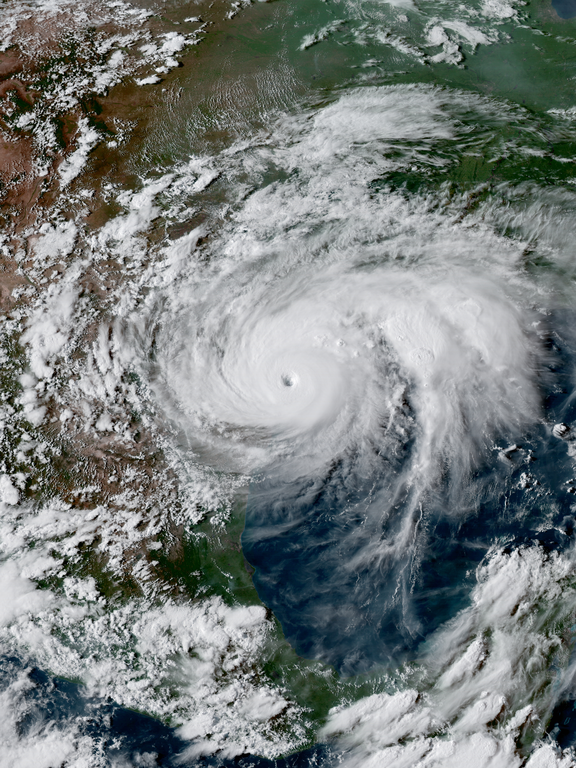
The same cover-up is happening in the aftermath of Hurricane Harvey – another unprecedented extreme weather event which last year flooded the US petrochemical hub in Texas. The full picture of its terrible toxic legacy is only beginning to emerge.
Harvey dumped so much rain that according to NASA it literally pressed the Earth’s crust down 2 centimeters. The weight of the water was the equivalent of 3,800,000 litres for every Texan. The state population is more than 30 million.
As far as flooding is concerned, I spoke with Dr Harold Wanless, a sea level rise expert of decades at the University of Miami. He told me that responsible US political leaders would already be relocating everybody from South Florida which will be wiped off the map in a matter of decades. They would be buying back homes in order to prevent a mass exodus when the housing market collapses and everyone is trying to leave all at once. That intervention would also require going in and doing environmental mitigation so we don’t leave fossil fuel refineries or nuclear plants under water. No one is doing anything of that sort. No one is decommissioning these structures. On the contrary, they are building two new nuclear reactors literally right on the coast south of Miami. Insanity rules. Corporate profits are making all the decisions.
A Pulitzer Prize-winning investigation has recently revealed that in the early ‘80s, the fossil fuel industry had their own climatologists working with the best climate models available. The executives of oil and gas companies learned the truth that carbon dioxide emissions will bring about global cataclysm in the not-so-distant future.
They responded to the information in a predictable fashion: they concealed it, started spending billions of dollars on the elaborate media campaign to disinform the public, and conducted business as usual. To respond accordingly to the evidence would have meant the end of exploration and exploitation of oil fields.
And yet, many activists and celebrities are tirelessly promoting „green growth” and convincing the rest of us that we should appeal to the corporate officers to do the right thing – stop the wanton decimation of the Earth’s ecosystem. The billionaire investors/shareholders do not earn their profits by defending justice or restoring ecological balance, do they?
This is a time-proven failure of a tactic. It’s another iteration of the entity being abused appealing to the abuser by thinking if they behave better, or appeal differently, the abuse will cease.
In the ‘70s – which were a decisive decade – a series of independent scientific papers (incl. Limits to Growth by MIT, 1972) forced their authors to draw the inescapable conclusion: the sacred, expansionist economy was incompatible with the living planet. If it were to persist for another 40 years it would seriously undermine the Earth’s ability to sustain complex life, and eventually bring about its own demise. Only a new economic model respecting the limits imposed by nature could give humanity a chance to avoid a near-term catastrophe. The only way to stop the military-industrial machine was to create an eco-pacifist movement. Western societies failed to do it. Why?
One simple component of this is that the neo-liberal hegemonic capitalist power structure consistently increases the speed of the economic treadmill. Hence, the average worker can ill-afford to take time off to educate, organize, protest and still pay their bills. This coupled with the ongoing aforementioned propaganda/dis-mis-information campaign by the corporate media.
The planet is burning. Still, the political and economic madness continues unabated. The state and private companies devour the living planet with growing ferociousness. The competition for the diminishing resources is becoming more and more fierce. The collective global debt and social inequality are exploding. Record numbers of deadly weapons are being manufactured and bought. The world powers are waging proxy wars, trade wars, and the critical battle for the high-tech industry domination. In a bid to ensure its full spectrum dominance, the American empire is expanding its nuclear arsenal and moving towards militarisation of space. That’s the reality. Let’s visit the realm of fantasy. If governments were influenced by empathy and displayed the „irrational” concern for the well-being of their citizens and natural environment, what steps would they take?
The response would look something like the dramatic mobilisation necessary if, say, the Earth was being invaded by an alien race. Governments around the world would begin enforcing the immediate phasing out of fossil fuel. They would also introduce procedures aimed at curbing the global population. (It is insane that there continues to be such relentless population growth amidst what we see staring us in the face with this convergence of crises.) Food and energy production (from alternative sources) would be localised. Simultaneously, those responsible for knowingly polluting the Earth would be brought to justice in the Hague, and made an example of.
Alas, no real change will happen. Global political leaders are all lobbyists for the corporate powers behind them. International climate and biodiversity agreements are just papier-mâché facades. Their function is to preserve the status quo.
In your work you’ve referenced the following sentence from Aldo Leopold: „One of the penalties of an ecological education is that one lives alone in a world of wounds”. Because of your close relationship with the wilderness, you not only describe the wounds but you also witness how they worsen over time.
I relate to the quote wholeheartedly, and it really speaks deeply to me. My experiences in the mountains, and all the other places of the Earth I visited while working on my forthcoming book, were bittersweet. On the one hand, I revel in nature, I am awed by the Earth’s handiwork and beauty. Yet, at the same time, going to these places, especially those I have long-term relationships with, I can’t help but see the degradation of them. Thus, it truly wounds my heart to watch them vanishing or being destroyed.
How do you cope with the sense of loss?
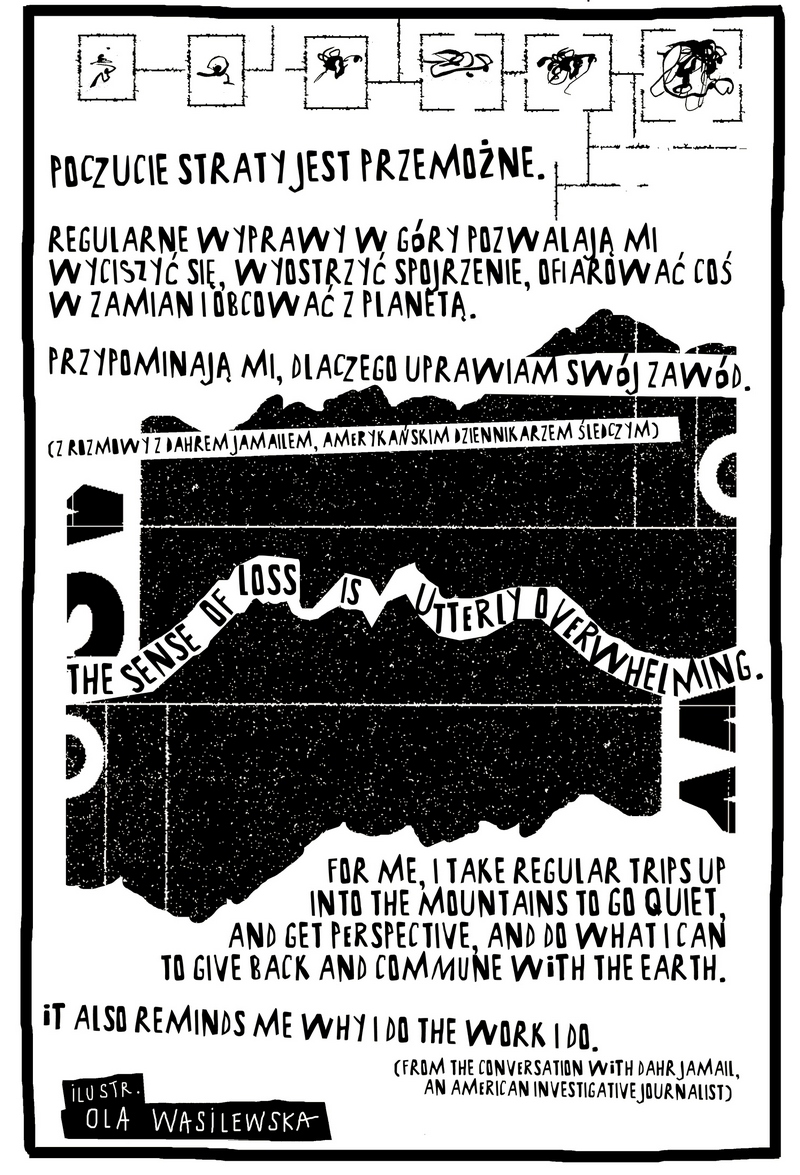
It is utterly overwhelming. My work has forced me to deal with the despair and grief that accompany these times. Each of us will have to cope with the unavoidable arrival of these feelings, but my work has sped this encounter for me. I practice my own spirituality, which is intensively Earth-based. For me, I take regular trips up into the mountains to go quiet, and get perspective, and do what I can to give back and commune with the Earth. It also reminds me why I do the work I do.
I’ve also found it imperative to have a strong local community: trusted friends to talk with, and share the burden, and process the latest bad news. We know what’s coming, we have our backs against the wall. Together, we are boosting our resilience. Today is better than tomorrow for the environment and the climate. The assault by the spreading fascism intensifies. It’s only going to keep getting worse. In the face of this inescapable reality, we still try to lower our carbon footprint. I produce my own energy and grow my own food. Such approach won’t change the trajectory we’re on but it’s the moral thing to do.
I do want to remind people that wherever you live there’s a part of nature not that far from you that’s still functional – a forest, a river or a mountain range. It is an urgent time to go out, and spend time with them because their days are numbered.
What are the benefits of seeing reality without the lens of wishful thinking?
Being able to make better decisions about priorities, to know what is really important, and respond accordingly. Without an accurate map, how can anyone truly hope to get where they are going? If we only have a limited amount of time left with land-based glaciers, if we only have a limited amount of time left with coral reefs and species that we are losing at a rate of 150-200 per day, I want to read and hear about it. That is going to influence how I live my life, what I choose to do. And I would hope that, for anyone with empathy, they would have a similar response.
The younger generations have been deceived and sacrificed on the altar of consumerism. What advice would you impart to the enlightened youth who had just woken up to this sad truth?
The standard western program of getting a job and making money and consuming is a dinosaur. Those days are over. The young must prepare to live on a completely changed planet, to work to care for what we have left, and form tight communities within their ranks to be prepared for what is coming.
Interviewer: MR
 ———
———
Did you know that…
→ An analysis published in Climatic Change (February 2011) has shown that according to the laws of thermodynamics, the industrial civilization of infinite economic growth is a heat engine. Hence, the carbon dioxide emissions will be accelerating because the energy use today is tied to society’s past economic productivity. In 2018, they increased by 2,7%. Meanwhile, the average level of atmospheric concentrations of carbon dioxide is already ~50% higher than in the pre-industrial era; in the case of methane, the increase is ~160%.
→ Absolute decoupling of GDP growth from the exploitation of natural resources and the destruction of ecosystems is not feasible on a global scale, even in optimal conditions. Such is the conclusion of empirical research conducted by the UN, among others.
→ The scientific literature on climate change has identified several dozen ongoing positive feedbacks (incl. growing emissions of methane from permafrost, accelerating soil respiration, incremental moistening of the upper troposphere).
→ New research detailed in Nature (31 October 2018) has found a shocking fact: over the past quarter-century, the Earth’s oceans have retained 10-70% more heat each year. The difference constitutes an enormous amount of additional energy trapped by the planetary atmosphere (it may exceed the world’s annual energy consumption by a factor of eight). It means the sensitivity of the climate system to greenhouse gases is at the upper end. Global warming is more advanced than previously reported.
→ The authors of a paper featured in Scientific Reports (13 November 2018) have warned that the extinction of plant and animal species from abrupt climate change, could lead to a „domino effect” that annihilates all life on the Earth. Organisms will die out because they depend on other doomed species in a process called co-extinctions. Just a 5°C/6°C increase in average global warming is enough to wipe out most living creatures. Their near-annihilation in the late Permian (252,2 million years ago) was associated with a ~6°C increase in global average temperature following volcanic eruptions. Researchers simulated 2000 virtual Earths, linking animal and plant species, and subjected them to catastrophic events including extreme environmental change, an asteroid strike, and nuclear war. It’s transpired that climate warming creates extinction „cascades” of the worst kind – their rate has been underestimated by up to 10 times.
→ The International Energy Agency stated that preserving our current economic paradigm guarantees a 6°C rise in the Earth’s average temperature before 2050. According to reports from 27 October 2017, Shell and BP analysts expect the globe to be 5°C warmer by mid-century. Now, scientists who factor in the aggregate impact of positive feedbacks, and a partial removal of the anthropogenic aerosols masking effect, confirm the probability of an exponential >6°C increase in the planet’s average temperature over the next eight years.
———
 Dahr Jamail – an American investigative journalist, independent war correspondent and author. He is a staff reporter for Truthout. Dahr’s revealing stories have graced the pages of Inter Press Service, The Sunday Herald in Scotland, The Guardian, Foreign Policy in Focus, Le Monde, Le Monde Diplomatique, The Huffington Post, The Nation, The Independent, and Al Jazeera. He has appeared as a guest commentator on the BBC, NPR, and numerous other international news networks.
Dahr Jamail – an American investigative journalist, independent war correspondent and author. He is a staff reporter for Truthout. Dahr’s revealing stories have graced the pages of Inter Press Service, The Sunday Herald in Scotland, The Guardian, Foreign Policy in Focus, Le Monde, Le Monde Diplomatique, The Huffington Post, The Nation, The Independent, and Al Jazeera. He has appeared as a guest commentator on the BBC, NPR, and numerous other international news networks.
Dahr’s illuminating and fearless work has earned him many awards, including the 2018 Izzy Award for outstanding achievement in independent media. The jurors recognised his path-breaking and in-depth reporting in 2017 exposing environmental hazards and militarism.
www.dahrjamail.net
Jeśli nie zaznaczono inaczej, materiał nie może być powielany bez zgody redakcji.

